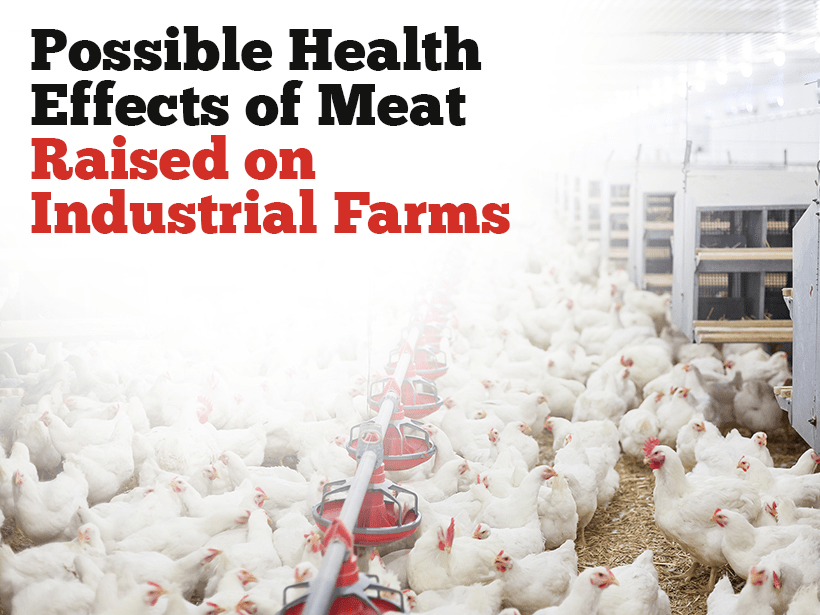When switching to the Keto Diet, many people might miss their favorite Italian pasta or daily snacks of fresh fruit. However, enjoying more meat and dairy in your diet is usually not one of the inconveniences that people complain about. While enjoying an extra couple of ounces of steak, chicken, or fish on a daily basis might sound appetizing, you should think long and hard about where you purchase that meat.
The industrial food system is dominated by factory farms that raise animals intensively and with a huge reliance on a wide array of chemical inputs. Understanding the possible health effects of regularly consuming factory-farmed meat will help you to make more informed decisions about how to find healthy animal protein sources for the Keto Diet.
Hormones in Your Milk and Meat
One of the most common practices that dairy farmers use to increase the production of milk from the cows they raise is the injection of a non-steroidal hormone called Bovine Somatotropin (BST)1, also known as recombinant bovine growth hormone (rBGH). While the FDA deems this drug safe for human consumption2, the American Cancer Society has found3 that cows injected with this hormone tend to exhibit higher levels of IGF-1. This hormone in high levels may influence the development of certain tumors in cows, such as mastitis. In humans, there may very well be a direct relationship between IGF-1 levels in the blood and the development of different types of cancer such as prostate cancer in men4 or breast cancer in women5.
Furthermore, while rBGH is the largest selling dairy animal drug in the United States, it is banned in 27 countries6 including Canada and the European Union due to the suspected health effects.
Cows, pigs, and other animals raised for meat also receive heavy doses or hormones and steroids to help increase their growth rate7. A groundbreaking study by the European Union’s Scientific Committee on Veterinary Measures Relating to Public Health (SCVPH)8 found that synthetic hormones injected into animals could increase their natural hormone levels by up to 20 times. This could lead to high levels of hormone residues in meat destined for human consumption. The SCVPH found that higher hormone levels could potentially lead to health problems including disrupted human hormone balance, developmental problems, reproductive system problems, and potential development of certain types of cancer such as prostate and breast cancer.
Antibiotics and Super Bugs
Another major problem associated with the industrial food system is the use of antibiotics in animals raised for meat. Because factory farms raise animals in close quarters that are often unsanitary, large levels of antibiotics are used to keep animals from developing infections. A recent report by the FDA9 revealed that over 29 million pounds of antibiotics were used on animals in 2009 alone.
The wide and often indiscriminate use of antibiotics in animals raised for food has led to the development of new “superbugs”, or strains of bacterium that are resistant to all known antibiotics. MSRA is one antibiotic-resistant staph that is present in many hog and chicken factories around the country. A report by Consumers Union10 finds that humans are at an increased risk due to the presence of superbugs that are increasingly present in meat and poultry.
Fortunately, people who adhere to the Keto Diet in order to achieve the numerous health benefits associated with ketosis have several alternatives to sourcing meat and poultry that is not produced on factory farms where hormones, antibiotics, and other chemicals are used in abundance. The local food movement is thriving, and small, local farmers will often offer organic, free-range, and grass-fed meat and poultry that is healthier and more nourishing.
NUTRITIONAL DISCLAIMER
The content on this website should not be taken as medical advice and you should ALWAYS consult with your doctor before starting any diet or exercise program. We provide nutritional data for our recipes as a courtesy to our readers. We use Total Keto Diet app software to calculate the nutrition and we remove fiber and sugar alcohols, like erythritol, from the total carbohydrate count to get to the net carb count, as they do not affect your blood glucose levels. You should independently calculate nutritional information on your own and not rely on our data. The website or content herein is not intended to cure, prevent, diagnose or treat any disease. This website shall not be liable for adverse reactions or any other outcome resulting from the use of recipes or recommendations on the Website or actions you take as a result. Any action you take is strictly at your own risk.
- Benefits of Eating Rabbit Meat - August 20, 2018
- Raising Your Own Food for a Keto Diet: A Primer on Raising Rabbits - August 15, 2018
- Some Possible Health Effects of Meat Raised on Industrial Farms - June 25, 2018




